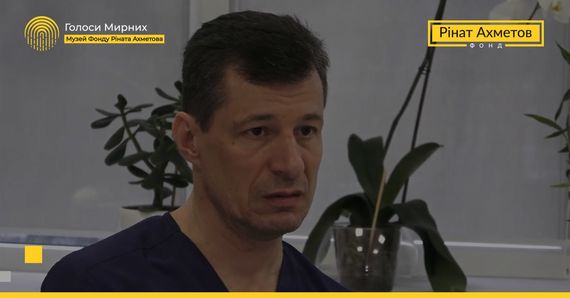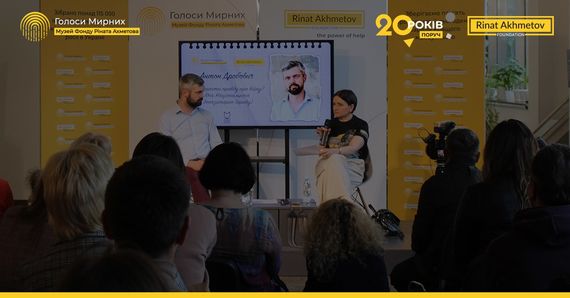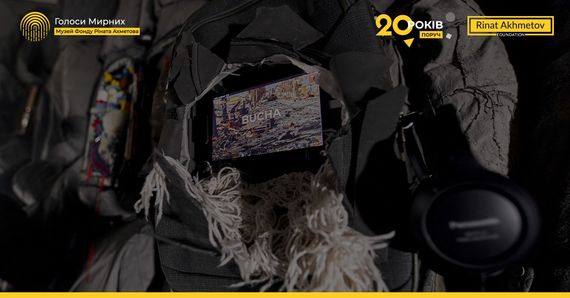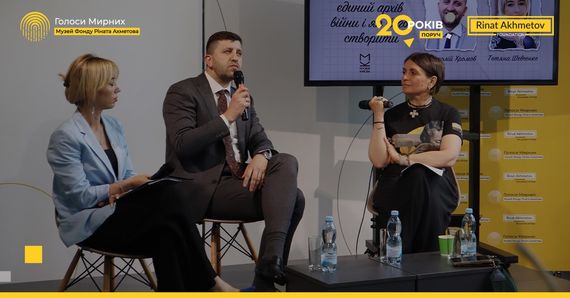"I still don't believe I was in hell": the story of a doctor from the film 20 Days in Mariupol at The Museum of Civilian Voices of Rinat Akhmetov Foundation

He saved the wounded from the first hours of the invasion. He was the one who emotionally appealed to putin when little Eva died in his arms during resuscitation. He is a doctor, one of the characters of the Oscar-winning film 20 Days in Mariupol. Oleksandr Belash, Head of the Anesthesiology Department at the Mariupol Regional Hospital, entrusted his story to The Museum of Civilian Voices of Rinat Akhmetov Foundation.
...Day and night mixed in the hospital. Two tables were placed in the operating room so that the doctor and anesthesiologist could operate on two people at the same time. The doctors slept right there in the corridor.
“New patients were registered only on the first day; there was no point in doing this any further. The wounded were brought 24-hours-a-day. Most of them had injuries sustained on the street during bombardments,” Oleksandr recalls.
He does not consider himself an emotional person. However, when a little girl's life was cut short by an enemy shell fragment, he could not help but feel emotional. This moment, where he appeals putin, was caught on camera by journalists and quickly spread through the news.
“The correspondents were working in our hospital. The reality they filmed was a drop in the bucket. I often recall those events and still do not believe that I was in hell. There was no food, no heat, no water in the hospital. We drank water with foam from a fire truck because there was no other one,” says Oleksandr.
He saw the film 20 Days in Mariupol at its premiere. His opinion on the documentary, the character of which he became, and which brought Ukraine its first Oscar, can be found at https://bit.ly/4cioqhI
A collection of stories from other characters in this film is available here: https://bit.ly/437onRq
Oleksandr's story was included in The Museum of Civilian Voices of Rinat Akhmetov Foundation. The Museum collects first-person stories of Ukrainian civilians about the war. Its archive contains more than 100,000 stories. Tell yours on the Museum's portal, https://civilvoicesmuseum.org/, or on the free hotline, 0 (800) 509 001.



